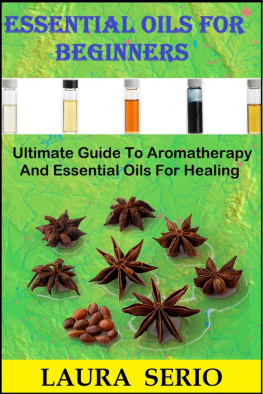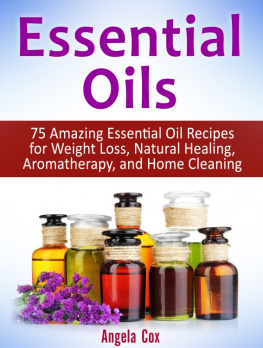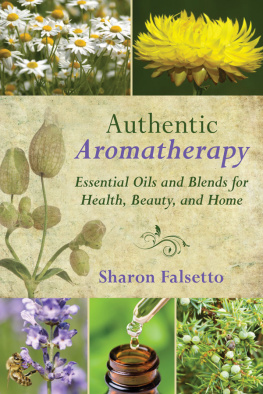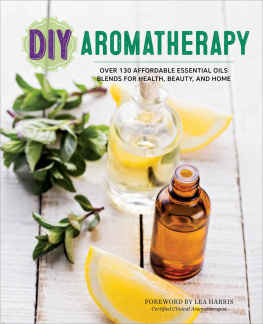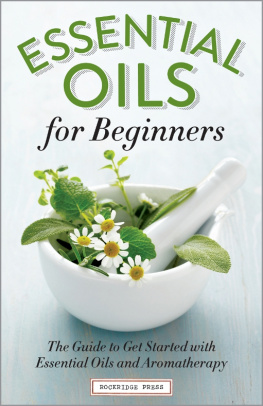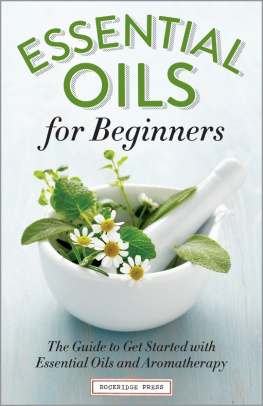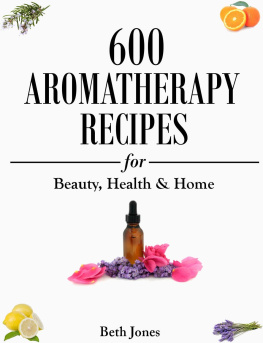GENERAL DISCLAIMER
The contents of this book are intended to provide useful information to the general public. All materials, including text and images, are for informational purposes only and are not a substitute for medical diagnosis, advice, or treatment for specific medical conditions. All readers should seek expert medical care and consult their own physicians before commencing any regimen for any general or specific health issues. The author and publishers do not recommend or endorse specific treatments, procedures, advice, or other information found in this book and specifically disclaim all responsibility for any and all liability, loss, or risk, personal or otherwise, which is incurred as a consequence, directly or indirectly, of the use or application of any of the material in this publication.
THE HISTORY AND USES OF OILS
Our sense of smell is the most primal of all senses. From day one, a newborn baby can distinguish scents better than sights and sounds. Often, our scent memory is more accurate than our visual cues. We may recall the aroma of a grandparents house, a sweet bakery, or the salt spray of the ocean better than we can visualize it.
The power of fragrance is nowhere more evident than in the world of essential oils. Aromatherapy offers a treasure trove of possibilities, not only for your olfactory system but also for your overall health.
HISTORY OF HERBAL MEDICINE
Medicinal plants have been used for tens of thousands of years, as evidenced by cave drawings of medicinal plants and from fossilized remains of Neanderthals who chewed poplar bark for pain relief. Significantly, a compound within poplar bark called salicylic acid was the precursor to modern-day aspirin. Even earlier archaeological evidence shows that our ancient ancestors in South Africa used insect-repellent sedges in their bedding 75,000 years ago.
The first written record of the medicinal use of plants goes back to 5500 BC, when ancient Sumerians documented various therapeutic herbal remedies on clay tablets. Papyrus scrolls reveal that ancient Egyptians extracted precious essential oils from aromatic leaves, bark, and roots; from resinous sap; and from fragrant flowers. They believed that when people fell ill, demons possessed their bodies, and only foul-smelling herbs could drive them away. Egyptians preserved their wines with herbs and drank them as digestive tonics. They used essential oils and flower waters as tonics for their faces and hair. An ancient Egyptian medicine called kyphi, consisting of more than a dozen oils from herbs and resins, remains a popular incense and perfume to this day.

Hand-colored illustrations from Nicholas Culpepers Complete Herbal, which was published in 1653. Many herbs and essential oils have a long history of therapeutic use.
Similarly, an ancient Chinese medical encyclopedia called the Huangdi Neijing documents hundreds of herbs to rebalance chi, or life force. In the ayurvedic tradition of India, the esteemed essential oil of a plant was believed to contain an agni, or fire, with tremendous healing powers. In ayurvedic tradition, ginger oil is considered the oil of empowerment and a universal medicine. Ancient Greeks dedicated particularly powerful herbs to various deities. The Greek father of medicine Hippocrates and the Roman physician Galen each developed remedies for various illnesses using herbal preparations that consisted of such plants as laurel, mint, and parsley. They used marigold to combat fever and lavender as a calming agent.

Myrrh resin and oil. Myrrh is one of the resins that appears in kyphi recipes.
Native American traditions also go back hundreds of years. Certain tribes cooled fevers with willow and birch, which contain the herbal aspirin salicylic acid. Some used echinacea for insect bites and the astringent witch hazel for inflammatory conditions. This long tradition of herbal remedies paved the way for modern-day aromatherapy.
AROMATHERAPY
Although the essential oils of plants and trees have long been used therapeutically, an understanding of how the oils work is relatively new. When you smell a favorite food, the scent triggers an instantaneous reaction in your body, stimulating your salivary glands even before your brain comprehends what you smell. That is because scent messages travel directly from your olfactory bulb (at the roof of your nasal cavity) up to the adjacent limbic system. This primitive part of the brain stem is the switchboard of the brain, and it relays incoming information to the higher brain for processing.
Once the limbic system receives a scent message, it triggers a response in the autonomic nervous system, which controls basic functions such as heart rate, breathing, digestion, perspiration, and sexual desire. It also triggers the endocrine system, which regulates mood and metabolism, and keeps the body balanced in homeostasis. Interestingly, scent messages to the brain go directly to our brains memory center, the hippocampus, which is why the familiar smell of a certain place can trigger old memories even before we recognize the location. Scent also triggers the amygdalathe seat of emotions and feara throwback to the vital fight-or-flight mechanism for survival.
EMOTIONAL HEALING
Essential oils trigger powerful effects on the human body. Probably the most popular use of essential oils is to unwind and relax the mind. Calming oils, such as the classic lavender, chamomile, and rose, can alleviate stress and promote deep relaxationor even put you to sleep, in the case of valerian oil. Other essential oils are decidedly bright and joyful, such as the fresh aroma of lemon and grapefruit oils. Citrusy oils can instantly brighten a room and lift a downcast mood. Richer fragrances, on the other hand, may add a sense of grounding or centeredness, such as the root oil vetiver and sandalwood. Penetrating oils, including frankincense and palo santo, are often considered spiritual oils because they lend themselves well to meditation and deep contemplation. Essential oils can also instill confidence and courage, in particular clove and ginger oil. Still other oils trigger sensual thoughts and desires: jasmines sultry fragrance is a classic aphrodisiac.
PHYSICAL HEALING
Aromatherapy goes beyond emotional support and offers a vast array of therapeutic benefits. On the simplest level, essential oils support the nervous system, helping to rebalance emotions. That, in turn, impacts the adrenal glands and hormones throughout the body. Essential oils such as eucalyptus and oregano promote respiratory health by acting as decongestants and expectorants that loosen phlegm and open up bronchial airways for easier breathing.

Sonic vapor essential oil diffuser
Inflammationone of the root causes of so many modern-day illnessescan lead to conditions that affect skin, joints, and bronchial passages. Anti-inflammatory essential oils can help minimize symptoms of diseases such as asthma, arthritis, gout, and rheumatism. Heart-healthy essential oils include anti-inflammatory oils, such as ginger, lemongrass, and helichrysum oil. Regular inhalation of these oils can supplement a healthy diet and lifestyle to improve overall heart health. Inflammatory skin conditions can find quick relief with a variety of essential oils. Antibacterial essential oils, such as oregano and thyme, can benefit acne and rashes, and the powerful tea tree oil can treat fungal infections such as athletes foot and thrush.


